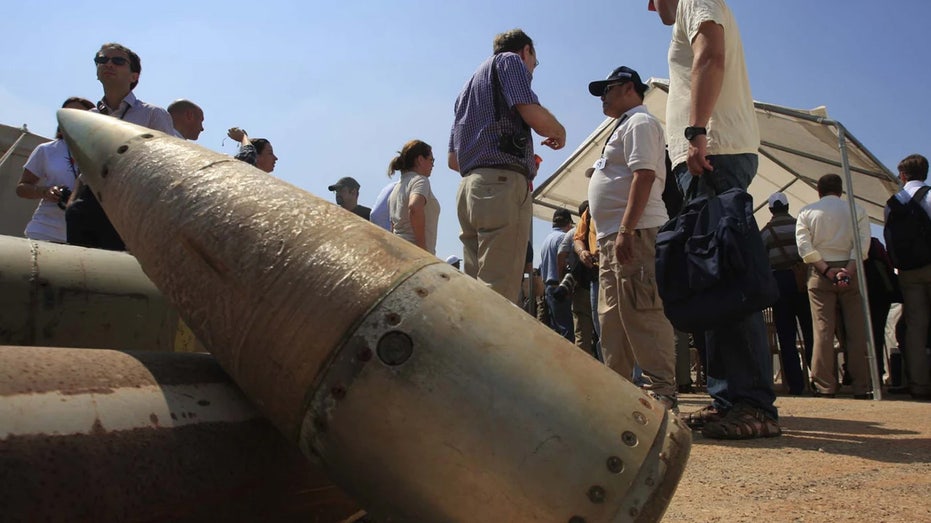US to give Ukraine cluster munitions and $800 million in military help, according to report
U.S. officials said Thursday that the cluster munitions would be part of about $800 million in new military assistance to Ukraine for continued war effort against Russia.

The Biden administration is providing cluster munition to Ukraine and is expected to announce additional military aid packages worth up to $800 million for war efforts against Russia, according to the Associated Press, citing people familiar with the decision.
U.S. officials said Thursday they expect the military aid to Ukraine will be announced on Friday. The weapons will come from Pentagon stocks and will also include Bradley and Stryker armored vehicles plus an array of ammunition, such as rounds for howitzers and the High Mobility Artillery Rocket System, known as HIMARS, officials said.
The officials and others familiar with the decision were not authorized to publicly discuss the move before the official announcement and spoke on condition of anonymity.
Cluster bombs are explosives that, once deployed, open in the air and release more submunitions, or "bomblets." They are dispersed over a large area, intended to unleash destruction on multiple targets at once. Cluster bombs can be delivered by planes, artillery and missiles, according to the International Committee of the Red Cross (ICRC).
Beyond the initial harm caused by the munitions upon impact, bomblets have a high rate of failure to explode, up to 40% in some recent conflicts, according to the ICRC.
While using cluster bombs is not a violation of international law, using them against civilians is.
To address widespread humanitarian concerns, the Pentagon said that the munitions will have a reduced "dud rate," meaning there were fewer unexploded rounds that can results in accidental civilian deaths.
U.S. officials previously shared that Russian forces use cluster munition on battlefields and in populated civilians areas.
Ukrainians officials have asked for U.S. assistance to aid their campaign to push through lines of Russian troops and make gains in the ongoing counteroffensive, U.S. official said.
At a Pentagon briefing Thursday, July 6, Brig. Gen. Pat Ryder said he had no announcement to make about cluster munitions. He said the Defense Department has "multiple variants" of the munitions and "the ones that we are considering providing would not include older variants with (unexploding) rates that are higher than 2.35%."
Ryder would not say whether Defense Secretary Lloyd Austin has reached out to NATO counterparts to address some of their concerns on the use of cluster munitions. Ryder said the U.S. is aware of reports that indicate some munitions have higher unexploded rates.
If the decision was made to provide the munitions to Ukraine, he said the U.S. "would be carefully selecting rounds with lower dud rates, for which we have recent testing data."
Ryder further explained that cluster munitions would help Ukraine by penetrating armor and fragmenting so they can hit multiple personnel — "a capability that would be useful in any type of offensive operations."
Oleksandra Ustinova, a member of Ukraine’s parliament who has been advocating that Washington send more weapons, noted that Ukrainian forces have had to disable mines from much of the territory they are winning back from Russia. As part of that process, Ukrainians will also be able to catch any unexploded ordnance from cluster munitions.
"We will have to de-mine anyway, but it’s better to have this capability," Ustinova said.
She credited Congress for pushing the administration over several months to change its position on the munitions.
Proponents of banning cluster bombs say they kill indiscriminately and endanger civilians long after their use. Groups have raised alarms about Russia’s use of the munitions in Ukraine.
A convention banning the use of cluster bombs has been joined by more than 120 countries who agreed not to use, produce, transfer or stockpile the weapons and to clear them after they’ve been used.
The United States, Russia and Ukraine are among the countries that have not signed on.
The Associated Press contributed to this report.






















